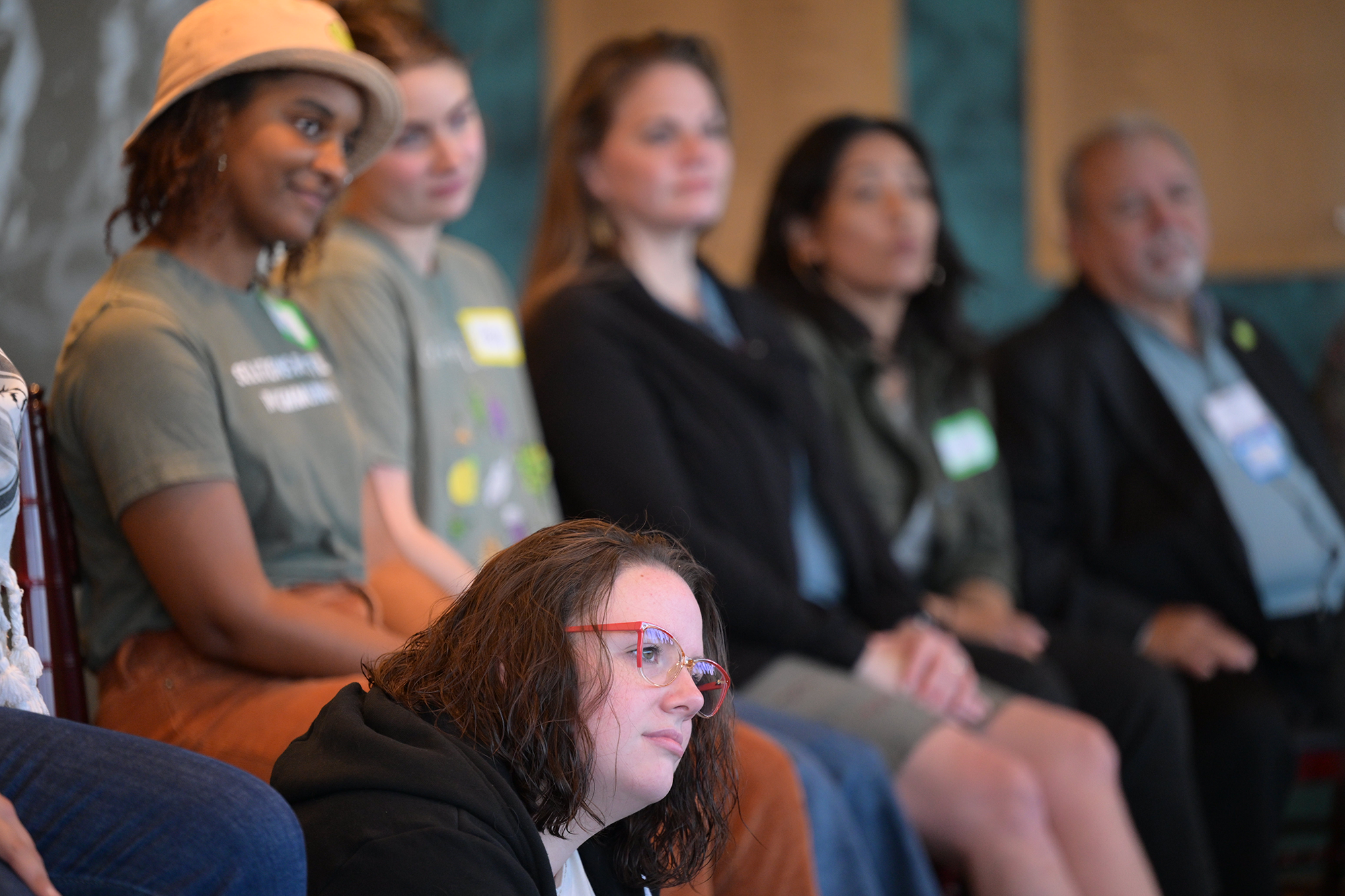
In this week’s Principle 6 newsletter, Mike Mercer considers the first two cooperative values, self-help and self-responsibility, and why they make cooperatives the ideal vehicle for needs fulfillment.
“Those whose needs are being fulfilled own the means of production. The purest form of organization along this path to needs fulfillment is the cooperative business model,” Mercer writes.
Read the full newsletter below, then consider how cooperatives could work together to meet more needs. NCBA CLUSA is on a mission to document Principle 6 collaborations across the country so we can identify trends, document best practices and share this knowledge with you—our fellow cooperators!
Share your example of Principle 6
Principle 6 Newsletter – Self-Help, Self-Responsibility
December 21, 2022
Self-help: Co-ops are geared towards creating a community where every member benefits equitably. To accomplish this ideal, members need to help themselves while also helping each other.
Self-responsibility: Much of the cooperative ideology is based on the idea that each individual member is individually responsible within the group. They should be responsible and play their part on their own, without the need for external motivation or incentive. – “Cooperative Values,” NCBA CLUSA website, 12-17-22
In 1994, Self-Help [Credit Union] began a process of deep community engagement and major revitalization in Walltown, a Durham, North Carolina neighborhood that was struggling with economic and physical decline. …The transformation has been remarkable. Crime has fallen, homeownership rates have increased, and property values have risen. – “Building Stronger Neighborhoods,” Self-Help CU website, 12-17-22
Self-help: Members joining together and making a difference. Whether it’s supporting a national charity like British Red Cross or working in their local community.
Self-responsibility: Every member doing their bit, making our co-op a success by supporting its activities and using its products and services. They encourage others to support it too. – “Co-op Values,” Co-op (large UK consumer co-op) website, 12-20-22

Abraham Maslow’s famous hierarchy of needs theory contends that fulfillment begins with basic physiological needs, proceeds through safety needs, and ultimately arrives at self-actualization things like morality, creativity, et al. Books have been written about the hierarchical progression through the needs that people can have in their lives. There were even a couple of new layers added to the Needs Pyramid over the years. We’ll leave all of that for the psychology classes in academia.
The relevant thing for this discussion is that people have lots of needs as they go through life. There are different organizational paths that have been devised to fulfill those needs. Understand that individuals can (and should) take advantage of all organizational paths to fulfill their needs. And know that these paths can be assembled in combination to meet certain needs. That said, consider the following structures for fulfilling needs:
Private Ownership
Operating Premise: What You do for Me
The invisible hand. Everyone operates in their own interest. Private property rights enable an individual (or a firm) to provide for “your needs in a way that benefits me.” In this way, the provider attempts to accumulate wealth for herself. The needs for goods and services are fulfilled because the provider made the investment and took the risk to make the product or service available. The need for work/earnings is fulfilled because the provider depends on labor to make the product or service. The need for safety is fulfilled in part because the provider offers medical insurance premium subsidies. The need for self-actualization is even met for some in the workplace that is made possible by the private ownership system.
The motivational engine in the private ownership system is “You (the person with needs) do for Me (the provider).”
State Ownership
Operating Premise: What We do for You
Government. Everyone is a potential beneficiary. Common property rights are established and enforced by elected officials and their legions of hired hands. Governance connections to those whose needs are being addressed are distant, often limited to periodic elections. Notwithstanding, the needs of many are fulfilled via the path of state ownership. Education and roads are examples. Public safety and national defense are security needs that are fulfilled by the state. Strategic research lays the groundwork for fulfilling long term needs, the packet switching technologies that led to the internet (which everyone considers a basic need these days) and, just recently, the first harnessing of fusion power. Leaders of the state determine how the money will be gathered (largely through taxes) and how it will be spent.
For the elected officials, needs fulfillment boils down to “We (the state) do for You (the beneficiary).”
Redistribution
Operating Premise: What We do for Them
Wealth transfer. From those that have—to those that need, wealth redistribution is a huge supplier of needs in our society. Progressive tax rates are the most common way to generate resources for significant needs fulfillment activities such as social security, Medicare, and unemployment benefits. Food stamps, farm subsidies and deposit insurance are just a few examples of needs being fulfilled through wealth redistribution systems. Government is not the only player in the redistribution game. Private foundations and charities direct huge resources from the haves to the have-nots. The beneficiaries of those initiatives are having needs met in many different ways.
Top-down benevolence is the characterization that applies in the redistribution business. It comes with a service mentality that sounds mostly like: “We (the redistributor) do for Them (the often-unseen beneficiaries).”
Collective Ownership
Operating Premise: What We do for Us
Those whose needs are being fulfilled own the means of production. The purest form of organization along this path to needs fulfillment is the cooperative business model. Cloaked in values and principles and built upon democratic ownership structures, co-ops aspire to meet the needs of members in the fairest and most inclusive manner. A successful co-op essentially leverages the influence of individual members in needs fulfillment by pooling resources and speaking as one in production and procurement. Co-ops should reinforce “what we are doing for us.” To the “us,” this can sound like an enlightened (but not necessarily exclusive) approach to needs fulfillment.
For collective ownership to soar as a preferred path to needs fulfillment, two things are essential: 1) the providers and users must embrace a commitment to help oneself, and 2) there must be a willingness to embrace responsibility (for the collective effort). Self-Help and Self-Responsibility are the first of six cooperative values for a reason. Lacking legitimate belief in and commitment to both values, an organization built upon collective ownership cannot sustain relevancy for long.
The fifth cooperative principle speaks to the importance of education. The most important element of co-op education is empowering members to help themselves, to effectively manage their own affairs. Teaching a farmer how to cost-effectively apply fertilizer to the field, showing a member how to manage their energy utilization, helping a member to plan ahead for life’s financial need—all examples of empowering members to help themselves.
The second most important lesson in co-op education could be to convey the importance of assuming responsibility in the collective. Not just for oneself, but for the other members and the well-being of the co-op. To that end, members can be effective at reaching out to others—to let them know of the value of membership and the benefits of collective ownership.
Done well, the collective ownership dynamic can ascend to a new plane of needs fulfillment relevance. At a minimum, “What We do for Us” can provide lucrative differentiation for collectively owned organizations, like your co-op.
Stay tuned,
Mike


